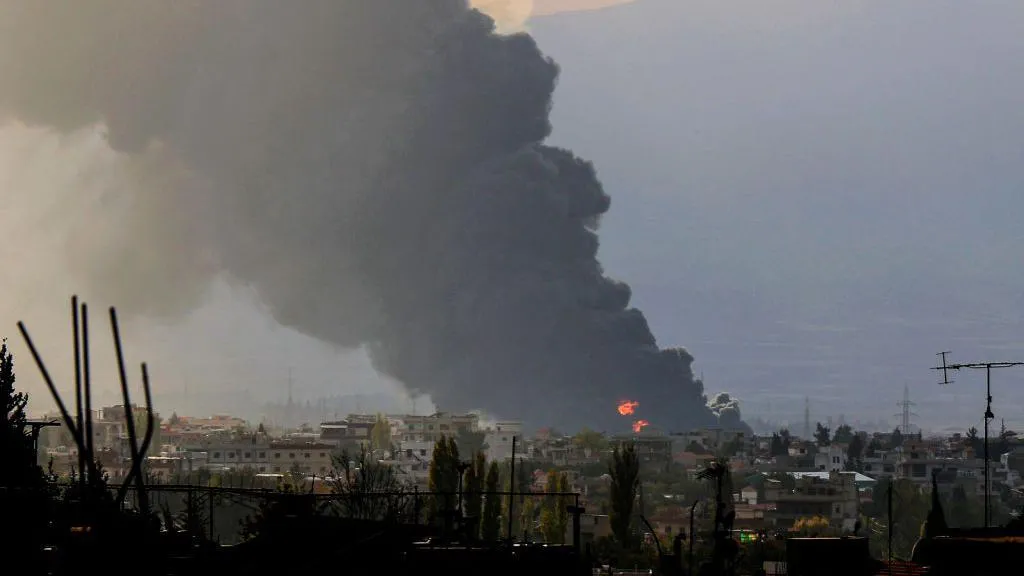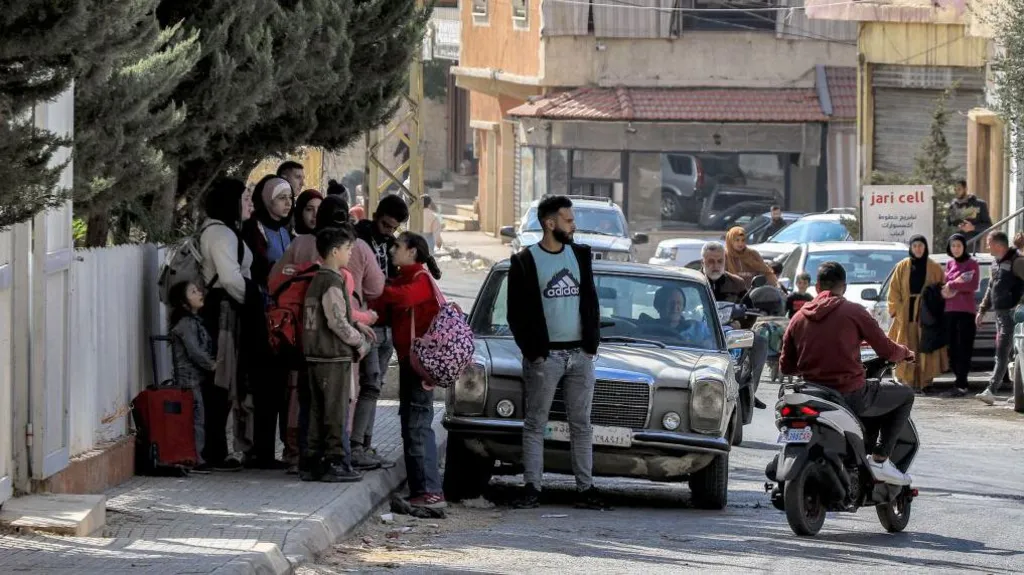
A recent series of Israeli airstrikes in Lebanon’s eastern city of Baalbek and surrounding areas has resulted in 19 fatalities, including eight women, as reported by Lebanon’s health ministry. This devastating outcome follows Israel’s evacuation orders issued to tens of thousands of residents.
The evacuation orders were promptly carried out, with residents fleeing the historic city in response to the Israeli military’s warnings.
According to Baalbek Mayor Mustafa al-Shell, the area witnessed over 20 airstrikes, with five targeting the city itself. Notably, Baalbek houses a UNESCO-listed ancient Roman temple complex.
The Israeli military confirmed that the airstrikes targeted Hezbollah command centers in Baalbek and Nabatiyeh.
In addition to the airstrikes, diesel tanks were also hit in Douris, causing massive black smoke, as reported by Lebanon’s state news agency.
Hezbollah’s newly appointed secretary-general, Naim Qassem, has pledged to continue the group’s war plan against Israel.
Qassem succeeds Hassan Nasrallah, who was killed in an Israeli airstrike in Beirut last month.
Qassem vowed to follow Nasrallah’s agenda, emphasizing Hezbollah’s unwavering commitment to its cause.
In his first speech since taking office, Qassem spoke from an undisclosed location amid reports suggesting he had fled to Iran.
Israel’s ongoing air campaign against Hezbollah has expanded to eastern Lebanon, targeting areas with strong Hezbollah presence and support.
Baalbek, situated in the Bekaa Valley, holds strategic importance for Hezbollah’s links to Syria, Iraq, and Iran.
The area is also characterized by poverty, making it a significant recruitment ground for Hezbollah fighters.
Israel issued evacuation orders for Baalbek and neighboring towns, explicitly warning of forceful action against Hezbollah interests.
Roula Zeaiter of the Lebanese Women Democratic Gathering described the situation as dire, highlighting the humanitarian crisis and emphasizing the urgent need for international intervention.
“Minutes after the order to leave came, the streets were filled with people grabbing their things, locking their homes and closing their shops,” she told the charity ActionAid.
“We’re scrambling like scared mice, moving from place to place. Lebanon is becoming like Gaza, with Israeli forces using the same tactics.”
Videos posted online showed huge traffic jams on the main roads out of the city.
Mustafa al-Shell, the Mayor of Baalbek, estimated that around 50,000 people fled the city within a span of two hours following the Israeli evacuation orders. However, he noted that many others decided to stay behind due to various reasons.
“It’s not clear what the Israelis have targeted,” he added. “But I can tell you that there are no ammunition dumps or weapons caches in Baalbek.”
Despite the uncertainty surrounding the targets, Al-Shell clarified that Baalbek has no ammunition dumps or weapons caches. This statement aimed to dispel potential misconceptions about the city’s involvement in military activities.
The National News Agency (NNA) provided more specific information regarding the areas impacted by the strikes. These included Ras al-Ain Hills, Amshki, al-Asira, al-Kayyal Road, Ain Bourday, and Douris.
In addition to the residential areas, diesel tanks near Douris were also targeted by the Israeli airstrikes. The impact of these strikes on the local infrastructure and economy remains to be assessed.
Fortunately, Baalbek’s UNESCO World Heritage site, featuring ancient Roman temples, remained unscathed despite the airstrikes. However, Al-Shell warned of potential “Israeli treachery” and urged international bodies to protect Baalbek’s historical ruins.
UNESCO expressed concerns about World Heritage sites in Lebanon and the Middle East, highlighting the Temple of Jupiter at Baalbek. This statement underscored the importance of preserving cultural and historical landmarks amidst conflicts.
“Unesco recalls to all parties their obligation to respect and protect the integrity of these sites. They are the heritage of all humanity and should never be targeted,” it said.
On Monday, Israeli strikes in Baalbek’s Gouraud Barracks area, near the Roman ruins, leveled several buildings and claimed over 60 lives across the Bekaa Valley.

US State Department spokesman Matthew Miller urged Israel to prioritize civilian safety and preserve cultural heritage, commenting on the Baalbek strikes.
Miller also revealed that US envoys Amos Hochstein and Brett McGurk were traveling to Israel to discuss a diplomatic resolution in Lebanon and a Gaza conflict ceasefire.
Sources disclosed that US mediators were crafting a proposal for a 60-day Israel-Hezbollah ceasefire, aiming to implement UN Security Council resolution 1701.
This resolution, ending the 2006 war, demands southern Lebanon be free from armed personnel and weapons, except for Lebanese state and UN peacekeeping forces.
Israel’s offensive against Hezbollah, deemed a terrorist organization, follows cross-border fighting sparked by the Gaza war.
Hezbollah’s rocket attacks, supporting Palestinians, displaced tens of thousands of northern Israeli residents, prompting Israel’s pursuit of safe return.
Lebanese authorities report over 2,800 deaths and 1.2 million displacements since October 2023, while Israeli authorities count over 60 deaths in northern Israel and the occupied Golan Heights.
Would you like me to search for more information on this topic? You can also try searching online for the latest updates.
Source: https://www.bbc.com/








